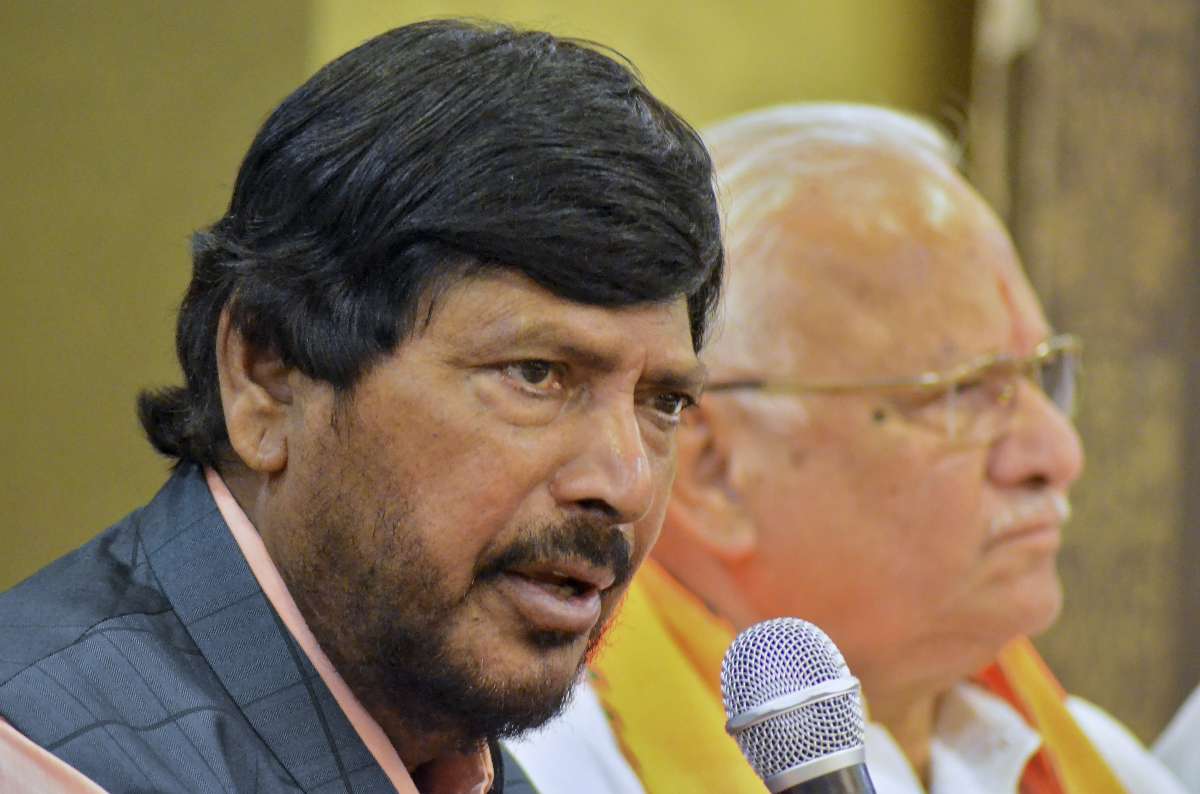 |
|
The political landscape of Maharashtra is currently embroiled in a power struggle following recent elections and coalition negotiations. Union Minister Ramdas Athawale, president of the Republican Party of India (Athawale), has revealed insights into the ongoing negotiations surrounding the selection of the next Chief Minister. Athawale's statement indicates a strong preference within the BJP high command for Devendra Fadnavis to assume the Chief Minister's post. However, this decision appears to have caused considerable discontent within the ranks of Eknath Shinde, whose support was crucial in forming the current government. The friction between these key players highlights the delicate balance of power and the challenges in forming a stable coalition government.
Athawale's suggestion for a compromise solution proposes that Shinde take a step back from the Chief Minister position, accepting instead the role of Deputy Chief Minister or a significant position within the central government. This proposal directly addresses Shinde's apparent unhappiness, offering a pathway to appease his concerns while maintaining Fadnavis as the preferred choice for the top post. The rationale behind this compromise lies in the understanding that Shinde and his 57 MLAs are essential to the stability of the BJP-led government. Athawale's suggestion seeks to maintain this crucial support base while simultaneously satisfying the aspirations of the BJP's preferred candidate.
The involvement of Prime Minister Modi and Union Home Minister Amit Shah in resolving this dispute underscores the national significance of the Maharashtra political situation. Their anticipated decision-making process will undoubtedly weigh the implications of both potential outcomes: a government supported by a united front versus one marred by internal conflict. The potential for instability and the need for swift action are paramount concerns. Athawale's call for a rapid resolution reflects this urgency. The timing of cabinet expansion will also be crucial, as it will impact the level of representation afforded to different factions within the governing coalition. Athawale's direct request for a ministerial post for his party highlights the political maneuvering and strategic negotiations inherent in coalition governance.
The situation in Maharashtra showcases the complexities of coalition politics. Balancing the competing interests and ambitions of various political players requires deft negotiation and compromise. The success of this negotiation will determine the stability and effectiveness of the upcoming government. A resolution that effectively manages the ambitions of key political figures is crucial for fostering a collaborative and productive government. Failure to reach a suitable compromise could lead to prolonged instability and potential government fragility. The upcoming decision regarding the Chief Minister and the overall cabinet composition will be closely watched both within Maharashtra and across the nation, providing valuable insights into the dynamics of coalition governance in a diverse and politically active region.
The entire situation underscores the importance of strategic alliances and the delicate balance of power in Indian politics. The roles of both the BJP high command and individual political figures like Shinde and Athawale reveal the intricacies of political negotiation and compromise. The outcome of this situation will have significant implications for the political future of Maharashtra and will serve as a case study in coalition government formation and maintenance. This case also demonstrates the importance of clear communication and effective negotiation in navigating complex political landscapes.
Source: Devendra Fadnavis poised to become Maharashtra CM, Shinde is unhappy, claims Athawale
